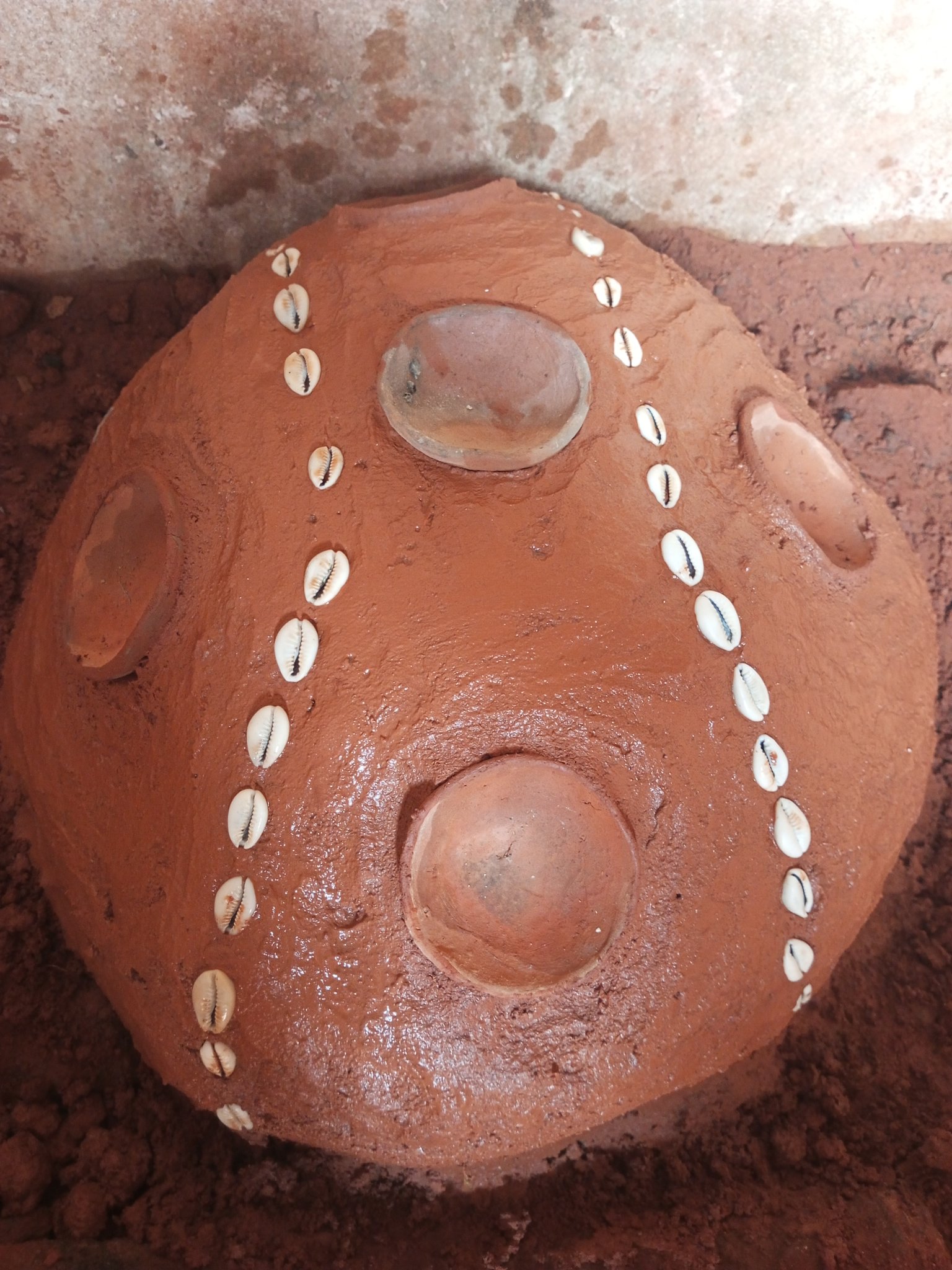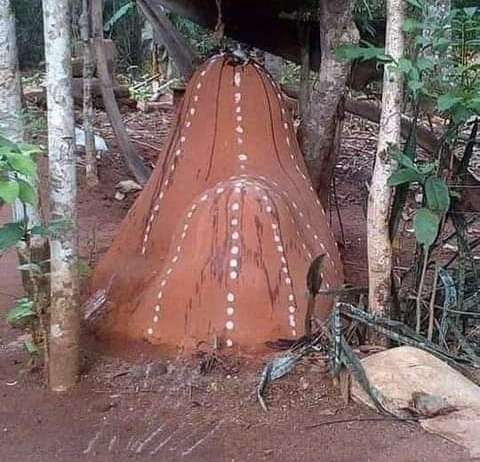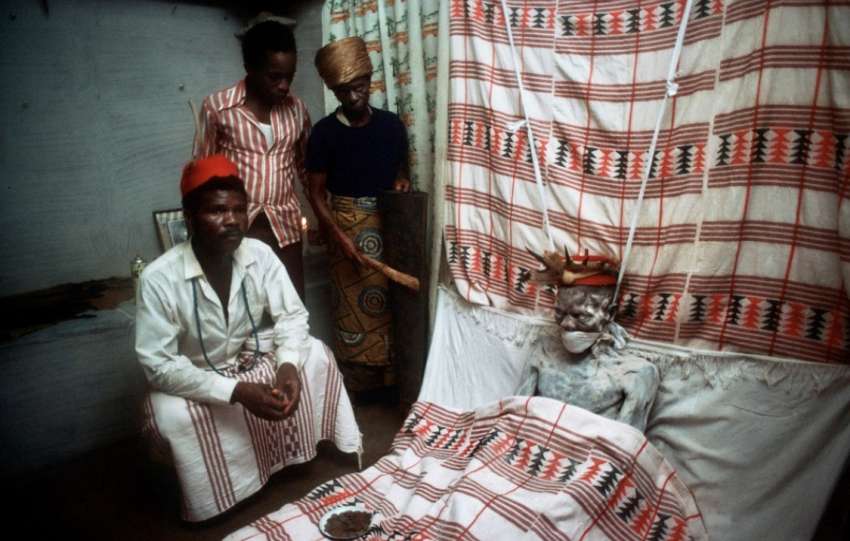
In Igbo culture, spirituality is a big part of everyday life. The Igbo people, who live mostly in southeastern Nigeria, have always believed in the power of spirits and gods to guide and protect them. One of the most important spirits in Igbo tradition is Akwali Ọmụmụ, also called Ekwe, Akwarị, or Oda Ọmụmụ. Akwali Ọmụmụ is the goddess of fertility, long life, and wealth, and her presence has been cherished by Igbo families for many generations. This article will take you on a journey to learn more about Akwali Ọmụmụ, her role in Igbo families, her sacred temples, and why she remains so important today.
Who is Akwali Ọmụmụ?
Akwali Ọmụmụ is a powerful goddess in Igbo spirituality. Her name, which can also be written as Oda Ọmụmụ, Ekwu Ọmụmụ, or Udala Ọmụmụ, means “the one who brings forth children” or “the one who ensures fertility.” She is a deity that helps families grow, stay healthy, and prosper. In Igbo belief, fertility is not just about having children—it also means having a good harvest, wealth, and a long, happy life. Akwali Ọmụmụ is seen as a loving mother who blesses families with these gifts.
Some Igbo people believe that Akwali Ọmụmụ is a spirit that works closely with families. Long ago, our ancestors would invite her into their homes by building a special temple for her. This temple, often called an “ọdụ” or “obi,” is a small structure made of clay and decorated with sacred symbols. The temple is usually placed in a quiet part of the family compound, where the family can pray to her and offer gifts like kola nuts, palm wine, or yams.
The Role of Akwali Ọmụmụ in Igbo Families
In Igbo culture, family is everything. Having children, growing crops, and living a long, successful life are seen as signs of blessings from the gods. Akwali Ọmụmụ plays a big role in making these things happen. Families who honour her often see her as a protector who ensures that their women can have children, their men can provide for the family, and everyone lives a long, healthy life.
When a family invites Akwali Ọmụmụ into their home, they make a promise to take care of her temple and offer her gifts regularly. In return, she blesses them with children, wealth, and protection. For example, a family might pray to her if a woman is finding it hard to have a baby, or if they are struggling to make enough money to feed everyone. Akwali Ọmụmụ listens to their prayers and helps them.
One special thing about Akwali Ọmụmụ is her connection to the udara tree (also called the African star apple tree). In many Igbo families, you’ll find an udara tree growing near her temple. The udara tree is believed to be planted by “okike,” which means the natural order or creation, not by human hands. This tree is sacred and is seen as a sign of Akwali Ọmụmụ’s presence. Its fruits are often used in rituals to honor her.
The Sacred Temple of Akwali Ọmụmụ
The temple of Akwali Ọmụmụ is a beautiful and sacred place. It is usually made of clay and shaped like a small dome or mound. The outside of the temple is decorated with white dots or patterns, which are symbols of purity and blessings. Sometimes, small clay pots or shells are placed on the temple to hold offerings like palm oil or water. The temple is often built in a quiet, shaded area of the family compound, surrounded by trees to show that it is a holy place.

Inside the temple, the family might keep sacred items like stones, beads, or a small statue of the goddess. The temple is a place where the family comes together to pray, give thanks, and ask for blessings. For example, if a woman in the family is about to give birth, the family might gather at the temple to pray to Akwali Ọmụmụ for a safe delivery. If the family is facing hard times, they might offer her kola nuts and ask for her help.
What Happens When Her Temple is Destroyed?
Akwali Ọmụmụ is a kind and loving goddess, but she is also very powerful. When a family invites her into their home, they make a vow to take care of her temple and honor her. If the family breaks this vow—by destroying her temple or neglecting her—they believe she can become angry and withdraw her blessings. This can bring a lot of problems to the family.
For example, some Igbo people believe that if a family destroys Akwali Ọmụmụ’s temple, the women in the family might find it hard to have children, or the men might struggle to provide for the family. The family might face poverty, sickness, or other hardships. This is because Akwali Ọmụmụ feels betrayed when her temple is destroyed. She sees it as the family breaking the sacred promise their ancestors made to her.
It is important to note that anybody who commits an abortion in Igboland has incurred the wrath of Akwali Ọmụmụ.
How to Honor Akwali Ọmụmụ Today
Even though many Igbo people are now Christians, the traditions of honouring Akwali Ọmụmụ are still alive in many communities. Families who still keep her temple continue to pray to her and offer gifts, just like their ancestors did. For families who have lost or destroyed her temple, there is still hope. They can rebuild the temple and start honoring her again.
To rebuild Akwali Ọmụmụ’s temple, the family should first consult a traditional priest or elder who knows the proper rituals. The temple should be built in a quiet part of the compound, and it should be decorated with the right symbols. The family should then offer gifts to Akwali Ọmụmụ, like kola nuts, palm wine, or yams, and ask for her forgiveness. They should promise to take care of her temple and honour her from now on. By doing this, they can bring her blessings back into their lives.
Why Akwali Ọmụmụ Matters Today
Akwali Ọmụmụ is more than just a goddess of fertility—she is a symbol of the Igbo people’s connection to their ancestors and their land. Honouring her helps families stay united and reminds them of the values their ancestors held dear, like respect for nature, family, and community. Even in modern times, many Igbo people still believe in her power and see her as a source of hope and blessings.
By keeping her traditions alive, the Igbo people are also preserving their culture and history. Akwali Ọmụmụ teaches us that the past and the present are connected and that we should always respect the promises our ancestors made. Whether it’s through rebuilding her temple or simply remembering her in our prayers, Akwali Ọmụmụ continues to be a guiding light for Igbo families.
Akwali Ọmụmụ, the Igbo goddess of fertility, long life, and wealth, is a powerful and loving spirit who has been part of Igbo culture for many generations. Her sacred temples, often marked by the udara tree, are places where families come together to pray for children, prosperity, and protection. When her temple is destroyed or neglected, families may face hardships, but by rebuilding her temple and honoring her, they can bring her blessings back into their lives.
Akwali Ọmụmụ reminds us of the importance of family, tradition, and keeping promises. She is a symbol of the Igbo people’s deep connection to their ancestors and their land. Whether you are an Igbo person living in Nigeria or part of the Igbo diaspora, remembering and honoring Akwali Ọmụmụ can bring blessings and keep our rich culture alive for future generations.
References
- Onwa_Nnewi [@Kene_Nnewi]. (2024, July 15). Ekwe / Akwarị / Oda Ọmụmụ Goddess of fertility, long life and wealth in Igboland.
- Sloaneangelou. (2024, April 29). Akwali Omumu: 10 Fascinating Facts About the Igbo Goddess of Fertility.
- DIBIA NWANGWU UCHENDU. (2023, February 24). Akwali Ọmụmụ: The goddess of fertility and all round goodness in Igboland.




